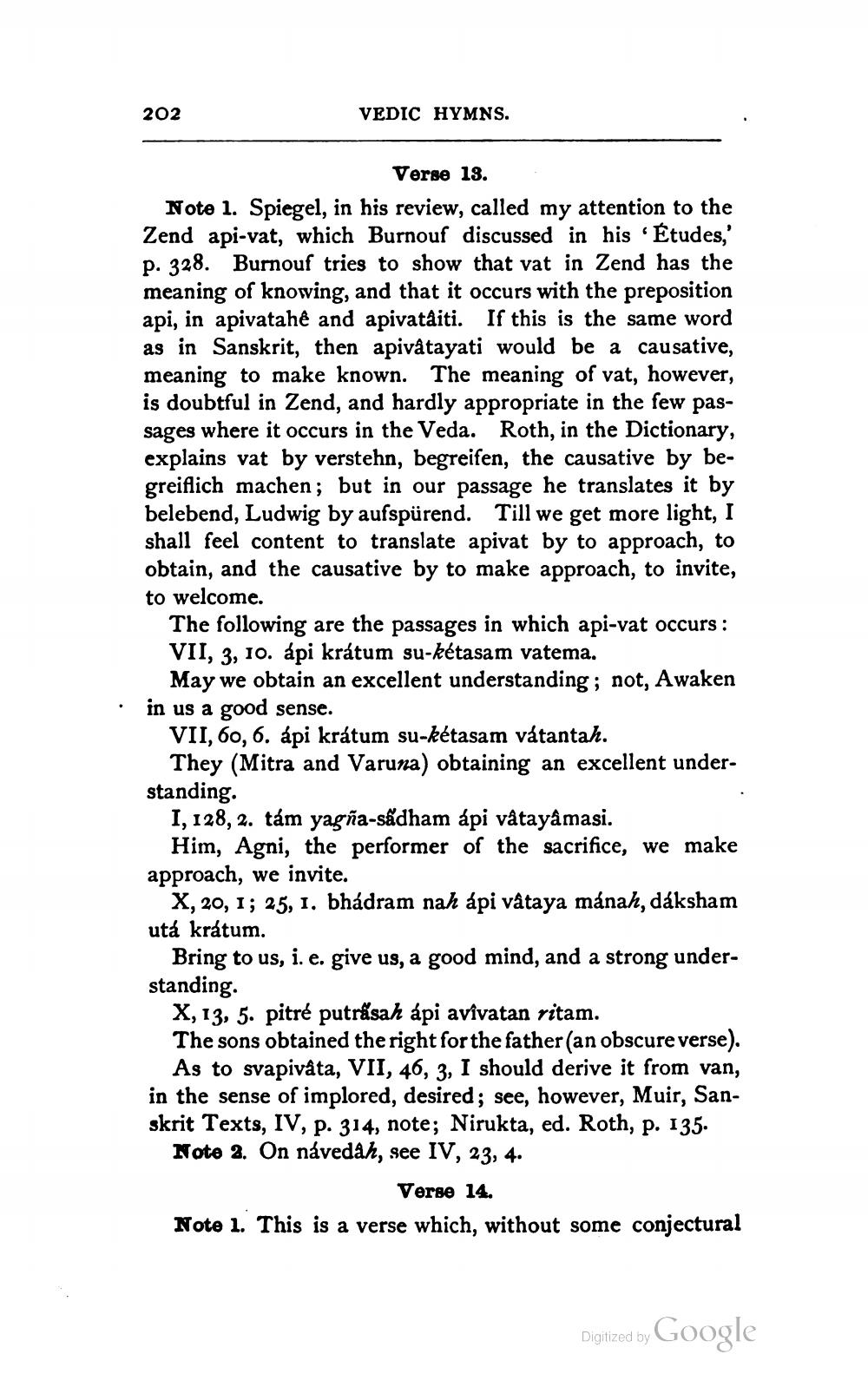________________
202
VEDIC HYMNS.
·
Verse 13. Note 1. Spiegel, in his review, called my attention to the Zend api-vat, which Burnouf discussed in his · Études,' p. 328. Burnouf tries to show that vat in Zend has the meaning of knowing, and that it occurs with the preposition api, in apivatahể and apivatäiti. If this is the same word as in Sanskrit, then apivatayati would be a causative, meaning to make known. The meaning of vat, however, is doubtful in Zend, and hardly appropriate in the few passages where it occurs in the Veda. Roth, in the Dictionary, explains vat by verstehn, begreifen, the causative by begreiflich machen; but in our passage he translates it by belebend, Ludwig by aufspürend. Till we get more light, I shall feel content to translate apivat by to approach, to obtain, and the causative by to make approach, to invite, to welcome.
The following are the passages in which api-vat occurs : VII, 3, 10. ápi krátum su-kétasam vatema. May we obtain an excellent understanding ; not, Awaken in us a good sense.
VII, 60, 6. ápi krátum su-kétasam vatantah.
They (Mitra and Varuna) obtaining an excellent understanding.
I, 128, 2. tám yagña-sadham ápi våtayâmasi.
Him, Agni, the performer of the sacrifice, we make approach, we invite.
X, 20, 1; 25, 1. bhádram nah api vâtaya mánah, dáksham utá krátum.
Bring to us, i. e. give us, a good mind, and a strong understanding.
X, 13, 5. pitré putrásah ápi avivatan ritam. The sons obtained the right for the father (an obscure verse).
As to svapivâta, VII, 46, 3, I should derive it from van, in the sense of implored, desired; see, however, Muir, Sanskrit Texts, IV, p. 314, note; Nirukta, ed. Roth, p. 135. Note 2. On navedah, see IV, 23, 4.
Verse 14. Note 1. This is a verse which, without some conjectural
Digitized by
Digized by Google




